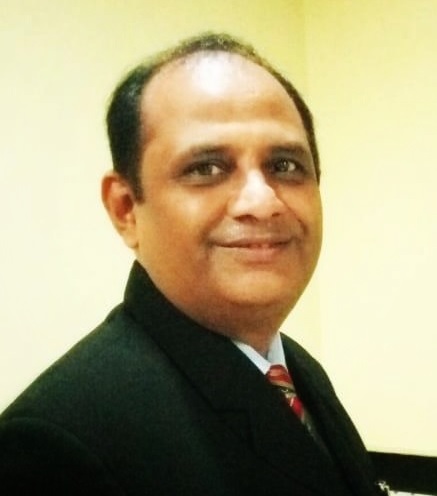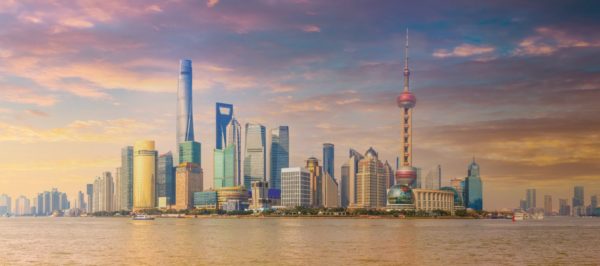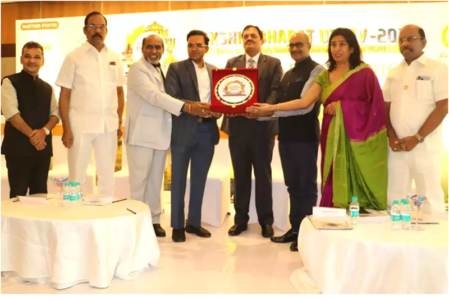By Tanisha Saxena
Indore, Madhya Pradesh is a poignant space for notable industries such as textile, machinery, pharmaceuticals, automotive ancillary and confectionery industry. Not to be dismissed, Indore is often referred to as Mini Bombay owing to its trade and commerce. Having said that, there are certainly some challenges that the industries are facing here.
We got in touch with Tarun Vyas, secretary of the Association of Industries Madhya Pradesh and he shed light on the challenges for the industries in the region, the highs and lows in the current scenario in Indore and much more.
Q1. Tell us about the role of the Association of Industries.
Ans. Our association started in 1960 and it is now a 63-year old association and we have around 2,600. We give membership to industries and not individuals. We have got all the industries and there’s no specific industry that we are biassed to or just cater to one particular industry. We have the plastics industry, pharmaceuticals, textiles, furniture, etc.
Our main role is to help and promote the industries, to look after the day-to-day problems of our members (industries) and create a healthy environment to facilitate industrial growth. We bring the issues that the industries face to the table of the government at the state as well as the central level.
Q2. Skill training being a poignant element in the development of the industries, how do you view the role of skill training and what steps have you taken in this regard?
Ans. Skill training is a very important thing that we all must agree on. Industries in Indore especially are very enthusiastic about training the youth. We have got tie-ups with different colleges and also IGTR (Indo German Tool Room). We are the board members there. IGTR is an initiative of the central government with assistance from the Republic of Germany. We provide assistance in the design and manufacturing of Press Tools and moulds. We have got a big segment for the confectionery industry as Indore is expanding day by day. We are tied to Parle and other companies.
We also give motivational speeches in the educational institutions as this is the foundation of the youth and we can get manpower from here itself in the first place. Therefore, we are in regular touch with every educational institution to provide assistance in skill training to the students.
Q3. Elaborate on the STRIVE scheme.
Ans. We are running the strive scheme. We were one of the five associations who got selected for the STRIVE scheme for imparting training and developing infrastructure for industries. As an industrial hub, Indore has a huge demand for manpower.
However, we have to accept that there’s a lack of trained manpower which needs to be resolved. In such a scenario, the STRIVE scheme is a great step to bridge the gap. Our honourable prime minister focused on developing the skills in an individual besides education that the educational institutions give to the students. In the scheme, one needs to get registered to join a particular industry as an employee. The person could be a 10th pass, 12th pass or graduate to be appointed. The industry appoints the person and further provides training. For instance, in pharma, they are taught how to punch a tablet or how to code a tablet.
In footwear, they are trained on how to make souls and so on. Under the scheme, the students enrolled get Rs. 2000 per month and then recently the Madhya Pradesh government has launched ‘Mukhya Mantri sikho kamao yojna’ in which students are getting stipends from Rs. 6000 to Rs. 10,000. We have done the registration for this and around 300 people are already registered under the STRIVE scheme.
Q4. What is the major challenge for the industries according to you?
Ans. Dual taxation is the biggest challenge in the present scenario. We have to pay the lease rent and maintenance cost to the industry department and also pay the property tax to Nagar Nigam or Panchayat. For the same land and infrastructure industries have to pay dual taxes and these taxes are too heavy. This is an extraordinary burden. We are regularly approaching the government for their intervention to resolve the matter.
Q5. Can you shed light on the state of the textile industry?
Ans. The textile industry was affected by the pandemic but now it is coming back to the track. The export for the European countries is going wonderful and in India, the garment industry is getting wider. Yes, during the Ukraine war crisis, the situation was dicey but thankfully it is coming back to its original form.
The main issue that the garment industry is facing here in Indore is land expansion and infrastructure. Industrialists want their set up near cities with better infrastructure and here in Indore it is quite challenging.
Q6. What has been the impact of the change in GST? Which industry is the worst hit?
Ans. The changes in the GST are slightly problematic as of now. For instance, somebody has exported something and in the view of export they have imported something.
Nowadays, the GST council is asking them to pay GST on that import. It is getting too troublesome and we are also trying to get this issue in front of the GST council.
The garment industry is suffering due to this GST issue. Apart from these issues the industries are working smoothly and we hope to improve in the near future.













